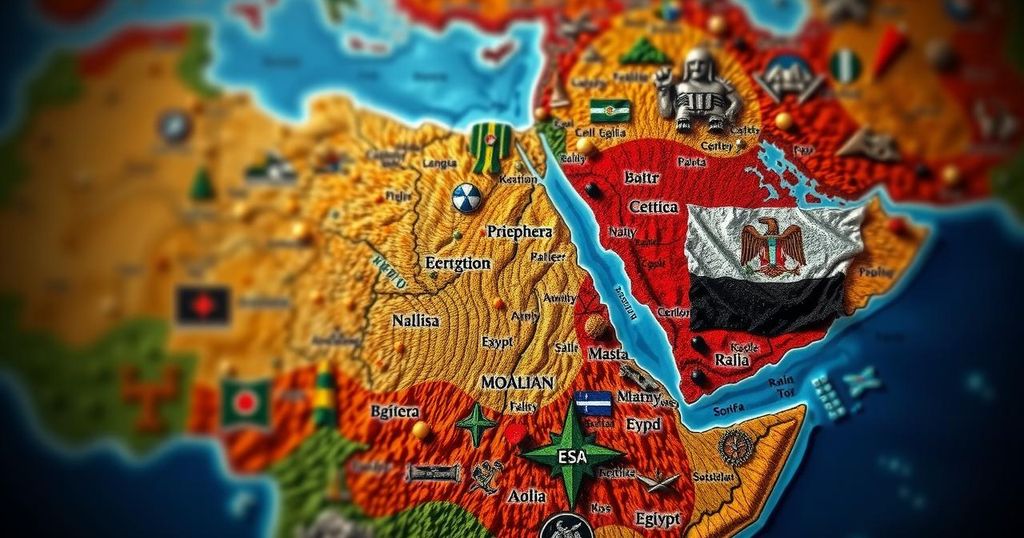Shifting Alliances in the Horn of Africa: The Egypt-Eritrea-Somalia Nexus
The summit involving Egypt, Eritrea, and Somalia signifies a strategic alignment aimed at encircling Ethiopia amid ongoing tensions over regional influence, notably concerning the Grand Ethiopian Renaissance Dam. The agreement highlights the rising cooperation among these nations and the potential shift in power dynamics in the Horn of Africa, raising concerns about stability and the future of regional relations.
The recent trilateral summit involving Egypt, Eritrea, and Somalia, conducted in Asmara, has marked a significant change in the geopolitical landscape of the Horn of Africa. The collaboration among these nations is ostensibly aimed at confronting regional security issues, with underlying concerns primarily revolving around Ethiopia, Africa’s second most populous country. This gathering of leaders—Eritrea’s Isaias Afwerki, Egypt’s Abdel Fattah al-Sisi, and Somalia’s Hassan Sheikh Mohamud—was imbued with the intention of fortifying regional stability, yet it served to encircle Ethiopia as tensions mounting over its influence continue to intensify. The primary agenda included a mutual agreement to enhance cooperation and protect regional autonomy, underscored by calls for maintaining territorial integrity and resisting outside interference. Ethiopia remains a central figure in the complex web of alliances and historical grievances characterizing the Horn of Africa, especially in light of its contentious agreement with Somaliland and enduring tensions with Egypt related to the Grand Ethiopian Renaissance Dam (GERD). The proposed deal that would allow Ethiopia to access Somaliland’s coastline has exacerbated existing strains, particularly with Somalia, which maintains its non-recognition of Somaliland’s independence. Notably, Somalia has solidified its military ties with Egypt, which involves military aid from Cairo to combat the al-Shabaab insurgency, signaling a shift in regional allegiances that may further isolate Ethiopia.
The Horn of Africa is a region marked by intricate alliances and a history of conflict stemming from territorial disputes and political disputes. Ethiopia’s significance in the region has increased, particularly regarding the GERD dispute with Egypt, which views the dam as a potential threat to its water supply. The historical rivalry between Egypt and Ethiopia, exacerbated by the filling of the dam, complicates their diplomatic relations. Moreover, Eritrea’s strategic location by the Bab el-Mandeb Strait and its desire to reclaim influence post-independence from Ethiopia renders its involvement pivotal in moderating Ethiopia’s ascent in the region. Somalia’s engagement with Egypt highlights its adversarial stance against Ethiopia during a period of regional volatility, initiating a significant shift in traditional power structures.
The recent developments involving Egypt, Eritrea, and Somalia signal a transformative moment in Horn of Africa politics, where regional alliances are rapidly evolving. As these countries seek to bolster their respective strategic positions against Ethiopia, it raises questions regarding future stability in the region. The potential for increased tensions, particularly from Egypt’s alliance with Somalia and Eritrea, necessitates a robust diplomatic approach by Ethiopia to mitigate threats. Overall, how these alliances unfold will significantly influence the security dynamics of the Horn of Africa.
Original Source: thehill.com








Post Comment